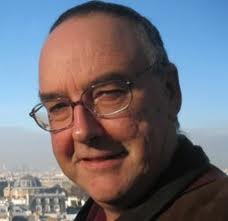
Callum Brown is Professor of Religious and Cultural History at the University of Dundee. He is a social and cultural historian with special research interests in religion and secularisation in the post 1750 period - especially in the 20th and 21st centuries - mostly in Scotland and Britain, but also Canada, USA and Ireland.
He is currently involved in the project A Social and Cultural History of Modern Humanism, covering Scotland, UK, Ireland, Canada and USA and using especially oral history focusing on the social and cultural origins of individuals' humanism, looking at issues like family background, religious experiences, and cultural alignments. He is also about to publish Religion and the Demographic Revolution: Women and Secularisation in Canada, Ireland, UK and USA since the 1960s (London, Boydell & Brewer), which looks at demographic behaviour in the North Atlantic world, and the correlations between gender change, the sexual revolution, changes in patterns of marriage and cohabitation, and changes in religious ritual (such as religious solemnisation of marriage, baptism and funeral rites), and incorporates considerable statistical research.
In partnership with the NSRN (Nonreligion and Secularity Research Network), it is our pleasure to bring you the audio recordings of five very important lectures from Grace Davie, Humeira Iqtidar, Callum Brown, Monika Wohlrab-Sahr, and Jonathan Lanman.
In this, the first of four summer break Editor's Picks "repodcasts", Louise Connelly reintroduces Chris's interview with Callum Brown, first broadcast on 30/4/2012. How can we use historical approaches in the study of religion? More specifically, can we use historical approaches to understand why people are losing it? Professor Callum Brown tells us why historical approaches have much to tell us about religious change.
How can we use historical approaches in the study of religion? More specifically, can we use historical approaches to understand why people are losing it? Professor Callum Brown tells us why historical approaches have much to tell us about religious change. How can we use historical approaches in the study of religion?
This work is licensed under a Creative Commons Attribution- NonCommercial- NoDerivs 3.0 Unported License.
The views expressed in podcasts, features and responses are the views of the individual contributors, and do not necessarily reflect the views of The Religious Studies Project or our sponsors. The Religious Studies Project is produced by the Religious Studies Project Association (SCIO), a Scottish Charitable Incorporated Organisation (charity number SC047750).